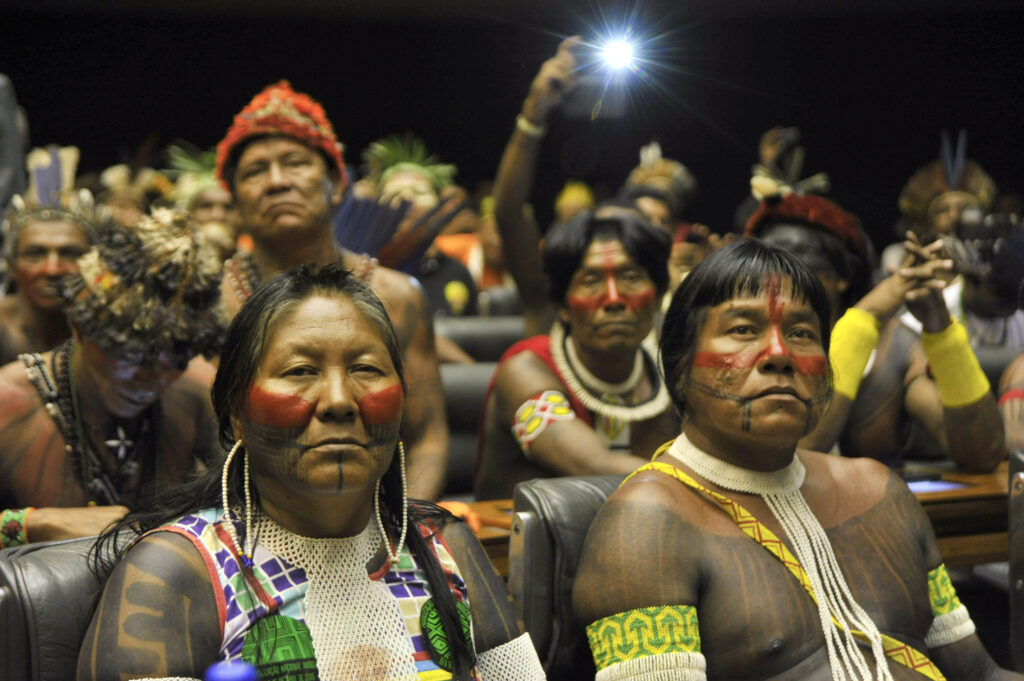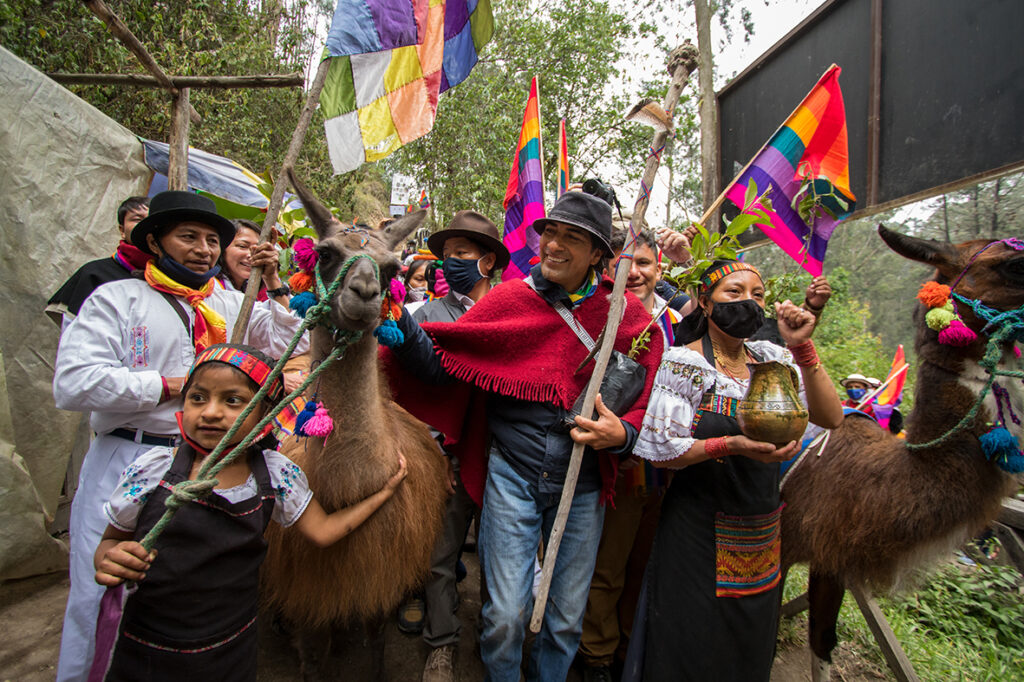
Welcome to the Anthropocene — the new geological epoch defined by the wrecking of forests, the acidification of oceans, the extinction of species, and the concentration of carbon and methane in the atmosphere, dramatically heating the Earth.
Some experts set the advent of the « Age of Man » in the early 19th century when fossil fuels were first burned for energy. The industrial revolution is the trigger point for the irreversible and permanent impact of mankind on its environment and has transformed the relationship between humans and the natural world, and the relationship between humans themselves.
From then on, leadership has become « the ability to control and manipulate nature and people for productive ends», writes economic historian Joel Mokyr. And it seems that the unprecedented threat to human life has not shaken up the way we lead both people and the planet. Quick reminder: the Global North is responsible for 92% of the world’s excess carbon emissions.
The first Western theory of Leadership emerges at the same time as the Anthropocene, in the 1840s. This temporal coincidence reveals that there is something fundamentally wrong with not only our leadership of nature but with the nature of our leadership itself.
The Leadership narrative of the « Great Man » that Thomas Carlyle theorised a little less than two centuries ago, refers to the concepts of influence, domination, and conquest. The « Great Man » is the leader who is ‘sent into the world’ to guide his people out of an unsolvable crisis. His exceptional charisma, heroism, and divine inspiration make him a higher being.
If this portrayal sounds familiar to you, it is because many leaders still depict themselves as all-powerful and christlike heroes. What Trump, Macron, and Poutine have in common (other than their climate inaction) is their embodiment of the « Great Man » figure.
This leadership imagery stems from the Cartesian philosophy according to which men are « masters and possessors of nature », and originates in the Christian ideology which transforms the leader into a messianic being. In this sense, the « Great Man » both dominates and surpasses nature.
That is where the real problem lies: our definition of Leadership can often be equated with authoritarianism and control. The Western narrative of the « Great Man » stages a leader whose influence and whose power are not perceived as a means, but rather as an end in itself. It also implies that the leader is profoundly rooted in the present, but does not necessarily act for future generations.
This leadership rationale, unfortunately, relegates people to a passive role in combating the climate crisis. In fact, the term « crisis » suggests that an inspirational ruler will magically appear to fix it. The idea that we are tragically and hopelessly approaching a point of no return reinforces this collective belief that someone will come to our rescue.
The words of indigenous activist Sherri Mitchell resonate:
« We must recognize that climate change is only one symptom of a larger problem. Human beings have fallen out of alignment with life. »
Humanity needs new leadership. And native wisdom may well be our most precious teaching.
Indigenous leaders embody values of reverence for nature and guide their people towards environmental responsibility and stewardship. Leaders are no longer dominating nature but are an integral part thereof. Their actions are often rooted in the belief that they must serve the Earth Mother, their community, but also their descendants. They are what Roman Krznaric would have called « the good ancestors »: deviating from short-termism and taking future-oriented decisions for their people. It is perhaps this language of legacy and this idea of empathising with future generations that can serve to galvanise communities around sustainability issues.
This context of affiliation and interconnectedness shapes the leaders into being compassionate and humble towards not only humans but also the non-human-world.
Native narratives of leadership value integrity over avarice, humility over dominance, compassion over control; they restore our essential connection with nature. « These leaders serve because of their commitment to the community, not because of any desire to have position or power, explains Professor Carolyn Kenny, there is a kind of modesty in this aspect of leadership. »
Yaku Pérez shows this leadership is possible at a national level. As a native, left-wing, and pro-climate candidate, he was close to winning the first round of presidential elections in Ecuador this February — so close that the country ordered a ballot recount. Yaku Pérez brought out ancestral imagery and intergenerational storytelling into his campaign to advocate « an ideology that promotes the environment and a sense of community; an ideology that doesn’t see nature as an inert thing you can exploit, but a living being that we all belong to. »

The recent publication Leadership for Sustainability (2020) authored by Hull, Robertson, and Mortimer makes no mention of native Leadership, but still promotes leaders who « embrace global interconnectivity, take a long-term view, [and] navigate polarizing conflict ». Co-writer Bruce Hull, who supports a Leadership that is more rooted in our capitalist, data-driven, and globalized society, further explains:
« Indigenous cultures offer lots of insights about leadership, collaboration, interdependency, and respect for Earth. But they have less relevance to the highly technical, globally connected, capitalistic world we live in. Modern, technically oriented, capitalistic, globalist, expert-driven people of today might be motivated by indigenous cultures, but we have to develop our own strategies; strategies that work for our times and our systems. »
Yet leaders may embrace native enlightenments without being natives themselves. Think of Greta Thunberg. Many would attribute her charisma to the « Great Man » theory but her vision is profoundly forward-looking and sensitive to the generations to come. « The solutions to the climate crisis must contain the knowledge and wisdom of indigenous peoples, she freely admits, we have much to learn from those who live by and through nature and have done so for thousands of years. »
Sherri Mitchell is still unsure about whether Western thought will truly implement the knowledge of her people in the face of climate change. To her, in the context of capitalism and short-termism, it takes more than will and openness to manifest Indigenous wisdom. It takes courage.